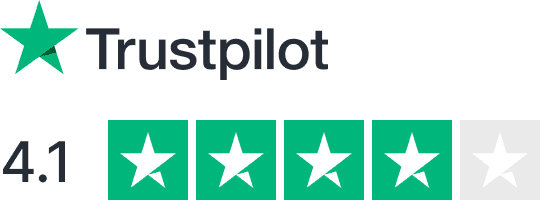Need to quickly scale your development team without the long-term commitment? Developer staff augmentation lets you add skilled developers to your team temporarily while maintaining full control over your projects. Here’s why it’s a smart choice:
- Access to Specialized Talent: Quickly fill skill gaps in areas like full-stack development, DevOps, or QA.
- Cost Savings: Reduce hiring expenses by up to 50% compared to U.S.-based engineers.
- Flexibility: Scale your team up or down based on project demands.
- Global Talent Pool: Tap into skilled developers from regions like Latin America, offering time zone alignment and affordability.
Quick Comparison of Staffing Models:
| Aspect | Staff Augmentation | Traditional Outsourcing | Direct Hiring |
|---|---|---|---|
| Team Control | Full control | Limited oversight | Full control |
| Cost Structure | Project-based | Fixed contract | Long-term investment |
| Integration | Direct team integration | Separate external team | Permanent team member |
| Scalability | Flexible | Contract-dependent | Limited by HR processes |
| Time to Deploy | Days to weeks | Weeks to months | Months |
Why Latin America?
- Cost Efficiency: Save 36–57% on salaries compared to U.S. rates.
- Time Zone Alignment: Real-time collaboration with minimal time differences.
- Skilled Workforce: Strong STEM education and English proficiency.
Staff augmentation is a practical way to meet tight deadlines, manage fluctuating workloads, and reduce costs – all while keeping quality high. Let’s dive into how it works and why it’s gaining popularity.
Boost Your Business with IT Staff Augmentation: Real …
Main Advantages of Staff Augmentation
Staff augmentation strengthens development teams by offering three major benefits.
Access to Skilled Developers
Gain immediate access to a wide range of specialists in technologies like JavaScript, Node.js, React, and Angular. This approach fills critical skill gaps fast. Common roles include:
| Role Type | Expertise Areas | Typical Use Cases |
|---|---|---|
| Software Engineers | Full-stack, Backend, Frontend | Feature development, system design |
| DevOps Engineers | CI/CD, Cloud Infrastructure | Optimizing pipelines, cloud migration |
| Data Scientists | Machine Learning, Analytics | Data modeling, predictive analysis |
| QA Specialists | Automated Testing, Quality Checks | Test automation, quality protocols |
Staff augmentation not only provides rapid access to talent but also helps cut recruitment costs significantly.
Lower Hiring Expenses
This model streamlines talent acquisition, delivering clear financial benefits:
- Contingency recruitment fees can range from 20–40% of an annual salary.
- Retained search firms may charge as much as 50% of the annual salary.
- Hiring U.S.-based engineers in tech hubs like New York can cost around $180,000 annually, including benefits.
- Staff augmentation often provides comparable talent at 40–50% lower costs.
For instance, a senior developer in New York earning $150,000, with an additional 20% in benefits (totaling about $180,000), could be replaced by an equally skilled professional from Brazil for $90,000 to $110,000.
Flexible Team Management
This approach also allows companies to adjust team sizes based on project needs. Staff augmentation supports:
- Quick scaling during development sprints
- Temporary hiring for specialized features
- Managing peak workloads effectively
- Gradual downsizing as projects wrap up
This flexibility ensures your team adapts seamlessly to changing project demands, maintaining efficiency without the challenges of long-term hiring.
LATAM as a Top Source for Developers
Latin America offers a wealth of advantages for U.S. companies looking to hire skilled tech professionals. Here’s a closer look at what makes LATAM talent stand out.
LATAM Developer Skills
Latin America’s strong focus on STEM education has created a large pool of talented developers. This expertise adds value to development teams in key areas:
| Specialization | Annual Salary Range | Potential Cost Savings |
|---|---|---|
| Back-End Development | $48,000–$78,000 | 48.44% |
| Front-End Development | $42,000–$78,000 | 44.59% |
| Full-Stack Development | $48,000–$78,000 | 35.85% |
| Mobile Development | $60,000–$84,000 | 36.48% |
| DevOps/SRE | $48,000–$60,000 | 54.97% |
U.S. Time Zone Match
Geographic proximity is another key advantage. Most Latin American countries are only one to two hours ahead or behind U.S. time zones. This makes real-time collaboration much easier. Teams benefit from:
- Synchronized workflows
- Quick responses to technical issues during shared working hours
- Real-time pair programming and code reviews
- Convenient scheduling for daily standups and sprint planning
Price vs. Quality Balance
LATAM developers offer a great mix of affordability and expertise.
Cost Efficiency
For example, LATAM Quality Assurance Engineers earn between $18,000 and $66,000 annually, resulting in over 56% savings compared to U.S. rates. Similarly, Software Engineers in the region earn $36,000 to $55,000, providing a 57.01% cost reduction.
Quality
Developers from Latin America are known for their problem-solving skills and customer-focused approaches. Programs like Fundación Jala’s hands-on software training ensure a steady flow of well-prepared professionals.
Cultural Fit
Cultural similarities and strong English proficiency make it easier for LATAM developers to collaborate with U.S. teams. This shared understanding leads to smoother communication and teamwork.
"Latin America offers skilled tech talent, cost-effective solutions, time zone alignment with North America, and cultural compatibility, making it a top choice for staff augmentation." – Jalasoft Editorial Team
sbb-itb-a3fbb4e
Setting Up Staff Augmentation
Team Needs Analysis
Start by evaluating your team’s strengths, weaknesses, and the specific demands of your project. This helps identify the technical expertise and resources you need to fill the gaps.
Here’s a breakdown of key areas to assess:
| Assessment Area | Evaluation Criteria | Next Steps |
|---|---|---|
| Technical Skills | Compare current expertise to project needs | List missing skills and experience levels |
| Project Timeline | Check deadlines and milestones | Estimate extra development hours needed |
| Resource Allocation | Assess team capacity and workload | Highlight areas that need additional support |
| Budget Constraints | Compare available budget to hiring costs | Weigh costs against staff augmentation options |
Provider Selection Steps
CareMinds offers a pool of over 1,000 pre-vetted developers and a network of 100+ independent recruiters, ensuring talent matches within three days.
When choosing a provider, focus on these key factors:
- Technical Expertise Verification
Confirm the provider’s ability to screen candidates effectively. Look for processes like:- Live coding tests
- Architecture design reviews
- Portfolios of past projects
- Validation of technical certifications
- Communication Infrastructure
Strong communication tools and protocols are essential. Check for:- Scheduled status updates
- Daily standups
- Dedicated project management support
- Clear escalation processes
- Flexibility and Scalability
The provider should offer adaptable engagement terms and fast scalability. For example, CareMinds provides a two-week risk-free trial and flexible termination policies, letting companies evaluate talent without long-term commitments.
Once you’ve selected a provider, the next step is to integrate the new team members smoothly.
Team Integration Methods
After choosing your provider, focus on getting the new developers up to speed quickly. Clear communication and structured workflows are key.
Onboarding Process
- Share detailed documentation about your development environment.
- Provide access to necessary tools and repositories.
- Assign a mentor from your internal team for guidance.
- Schedule regular check-ins during the first month to monitor progress.
Collaboration Tools Setup
Ensure the right tools are in place for seamless collaboration:
| Tool Type | Purpose | Implementation Timeline |
|---|---|---|
| Project Management | Track tasks and plan sprints | Week 1 |
| Version Control | Manage code repositories and reviews | Days 1–2 |
| Communication | Enable team chat and video calls | Day 1 |
| Documentation | Maintain technical specs and knowledge base | Week 1–2 |
Example in Action
In March 2023, Spotify partnered with Mailchimp to onboard new developers for their Email Verification API project. Within 60 days, the team reduced email bounce rates from 12.3% to 2.1%, improving deliverability by 34% and generating $2.3M in additional revenue.
Solving Common Issues
Clear Team Communication
Good communication is the backbone of successful staff augmentation. For remote development teams, having the right systems in place ensures productivity and smooth collaboration.
| Communication Layer | Tools & Practices | Purpose |
|---|---|---|
| Daily Sync | Slack, Microsoft Teams | Quick updates and instant messaging |
| Project Planning | Jira, Trello, Asana | Task tracking and sprint management |
| Code Review | GitHub, GitLab | Version control and code collaboration |
| Documentation | Confluence, Notion | Knowledge sharing and process guides |
Regular check-ins and team-building activities can strengthen connections. Clear communication helps tackle time zone differences effectively.
Time Zone Management
Collaborating with LATAM developers provides a convenient time zone overlap for U.S. companies. In fact, 21% of Latin American professionals work remotely.
To make the most of these time zone benefits:
- Schedule meetings during overlapping work hours.
- Use time zone conversion tools for planning.
- Document key decisions for team members who may not attend live.
- Keep communication channels open and flexible.
"Understanding LATAM time zones is paramount for maximizing the efficiency and effectiveness of remote work arrangements." – virtuallatinos.com
While synchronous collaboration is helpful, detailed documentation ensures projects stay on track.
Project Documentation
Good documentation is key to smooth knowledge sharing and consistent project progress. A centralized knowledge base should include:
- Technical specifications and architecture diagrams
- Code standards and best practices
- Project milestones and deadlines
- Roles, responsibilities, and escalation procedures
Here’s how to maintain effective documentation:
- Use standardized templates for consistency.
- Keep documents updated regularly.
- Implement version control to track changes.
- Ensure team members have the right level of access.
Collaborative tools that allow real-time updates and scheduled reviews can help keep everything organized and accessible.
Conclusion
Staff augmentation offers a practical way to expand development teams while keeping costs under control and maintaining quality. It provides access to specialized skills, reduces hiring expenses, and allows for flexible team management.
For U.S. companies, Latin America stands out as a great option, thanks to its large talent pool and cost advantages. This combination of affordability and expertise has been recognized by industry experts.
"Staff augmentation is a tried-and-tested way to reach out for help rather than attempting ambitious projects completely in-house." – Andy Hilliard, CEO at Accelerance
With software developer jobs expected to grow by 25.5% by 2033, and widespread support for its ability to optimize budgets without compromising quality, staff augmentation is poised for continued success.
Here are some key factors that contribute to its effectiveness:
| Factor | Impact |
|---|---|
| Time Zone Alignment | Real-time collaboration with LATAM teams |
| Cultural Compatibility | Easier team integration and better dynamics |
| Cost Efficiency | Significant savings on development costs |
| Skill Availability | Access to a broad and skilled talent pool |
With its cost benefits, time zone alignment, and access to top talent, staff augmentation is a smart choice for scaling development teams. When implemented and managed effectively, it allows businesses to tap into global talent pools, stay competitive, and keep up with the demands of the fast-moving tech industry.
















